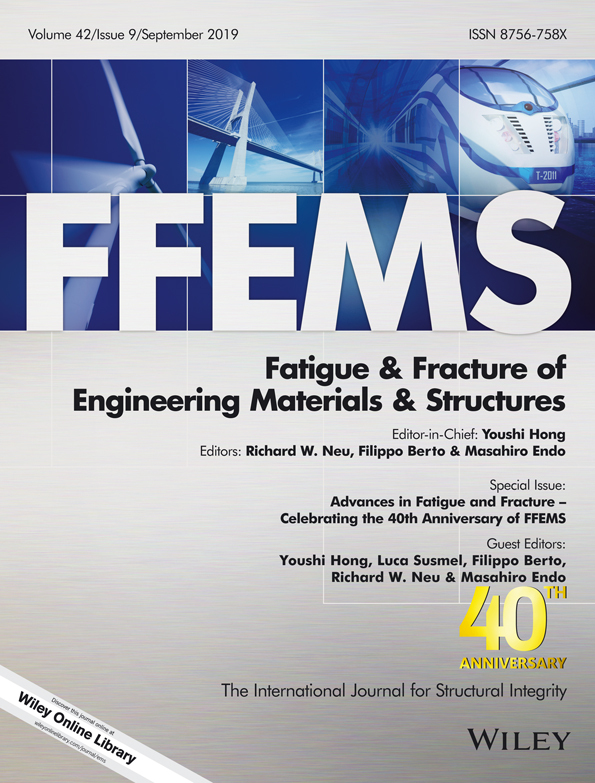Observations of fatigue crack behaviour in proton-irradiated 304 stainless steel
Abstract
Thermoelastic stress analysis (TSA) has been used to monitor fatigue crack growth in compact tension (CT) specimens, made from 304 grade austenitic stainless steel, that have been subject to proton irradiation. Several specimens had a 10 × 10 mm area ahead of a 1-mm precrack irradiated with a 1.6 MeV proton beam up to 0.216C to 0.648C of accumulated charge prior to fatigue testing. Subsequently, specimens were loaded sinusoidally at 20 Hz with an R ratio of 0.5, and TSA data were collected both at the loading frequency and its second harmonic. Irradiation appears to cause an increase in the fatigue life, with a reduction in crack growth rate observed in the irradiated specimens compared with the unirradiated control specimens. Irradiation damage caused a moderately linear change in both the parameters of the Paris law with accumulated charge from the irradiation.
CONFLICT OF INTEREST
No potential conflict of interest is declared by the authors.




